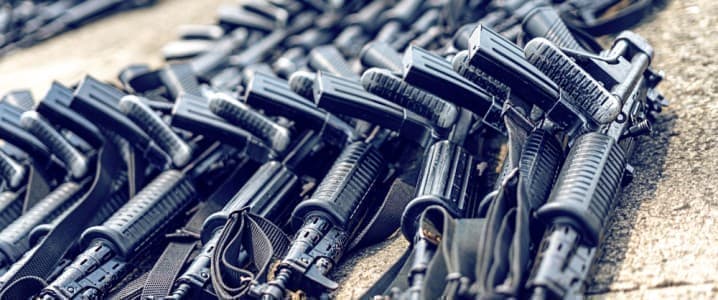A cold conflict is escalating between France and Azerbaijan. And the latest twist in the tit-for-tat spat is heightening the prospect of renewed conflict in the Caucasus.
On June 18, French Defense Minister Sebastien Lecornu announced the sale of 36 Caesar self-propelled howitzers to Armenia. The move immediately sparked vitriolic responses from Azerbaijan and Russia. The Azerbaijani Defense Ministry called the sale as a “provocative” step that could revive the region as a “hotbed of war.”
Russian Foreign Ministry spokeswoman Maria Zakharova echoed the Azerbaijani narrative, saying that “Paris is provoking another round of armed confrontation in the South Caucasus, and they are doing it in different ways.”
The Armenian Foreign Ministry brushed off the criticism, issuing a statement asserting that “it is the sovereign right of every country to have a combat-ready army equipped with modern military hardware.”
In recent days, Azerbaijan’s Defense Ministry has reported several instances in which Armenian forces allegedly fired on Azerbaijani positions along the two countries’ border. Yerevan has denied allegations of initiating any gunfire exchange. At the same time, reports appearing in state-connected media in Azerbaijan have hinted at the rising potential of renewed conflict; one commentary published June 22 by the official APA news agency raised the possibility of a “Third Karabakh War.”
“The Armenian leadership, which did not draw any conclusions from its successive defeats in the military and diplomatic fields, has begun to exhibit a non-constructive approach,” the APA commentary stated. It went on to single out France as provoking confrontation in the Caucasus.
“In the 21st century, France, which still has the status of a shameful neo-colonial state, is trying to play the provocateur role it plays on a global scale, in the processes in the South Caucasus region,” according to APA.
As the APA statement highlights, Azerbaijan’s sharp response is connected to Baku’s deep antipathy for France, rooted in Paris’ strong support for Armenia throughout the three-decade struggle for control of Nagorno-Karabakh, a conflict that ended late last year with Azerbaijan’s decisive defeat of Armenian forces and the cleansing of Karabakh’s ethnic Armenian population.
The reaction is also linked to a chain of events since the start of 2024, in which France and Azerbaijan have taken turns antagonizing each other. In March, for example, French president Emmanuel Macron welcomed Armenian Prime Minister Nikol Pashinyan in Paris, offering unambiguous political backing for Armenia’s territorial integrity and its efforts to improve relations with the West.
Resenting what it perceived as further meddling in the Karabakh peace process, Azerbaijan reportedly helped stir up independence sentiment that led to violent protests in May in the French Pacific colony of New Caledonia. Baku denied French allegations of involvement, but Azerbaijani media outlets did start assailing France’s “neo-colonial” behavior.
Azerbaijani President Ilham Aliyev appeared to take a backhanded swipe at France earlier in June when he raised the possibility of Azerbaijan creating a development fund to help small island nations.
The howitzer sale can be seen as France clapping back at Baku. But a feud that has been up to this point limited mainly to verbal sniping now has reached a point where, if not managed well, it could prompt actual bullets to start flying again in the Caucasus.
More Top Reads From Oilprice.com:
- Houthi Attacks Elevate Insurance Rates for Commercial Vessels
- Exxon and Partners’ Net Profit From Guyana’s Oil Soared in 2023
- Renewable Energy Growth Fails To Offset Fossil Fuel Dominance


















